
CAS Newsletter 2015/2016
Articles, pictures and interviews can be reprinted only with the consent of Centre for Advanced Study Sofia (CAS - Sofia). Any citations should be duly acknowledged.
More...We kindly inform you that, as long as the subject affiliation of our 300.000+ articles is in progress, you might get unsufficient or no results on your third level or second level search. In this case, please broaden your search criteria.

Articles, pictures and interviews can be reprinted only with the consent of Centre for Advanced Study Sofia (CAS - Sofia). Any citations should be duly acknowledged.
More...
Articles, pictures and interviews can be reprinted only with the consent of Centre for Advanced Study Sofia (CAS - Sofia). Any citations should be duly acknowledged.
More...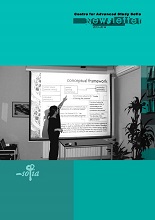
Articles, pictures and interviews can be reprinted only with the consent of Centre for Advanced Study Sofia (CAS - Sofia). Any citations should be duly acknowledged.
More...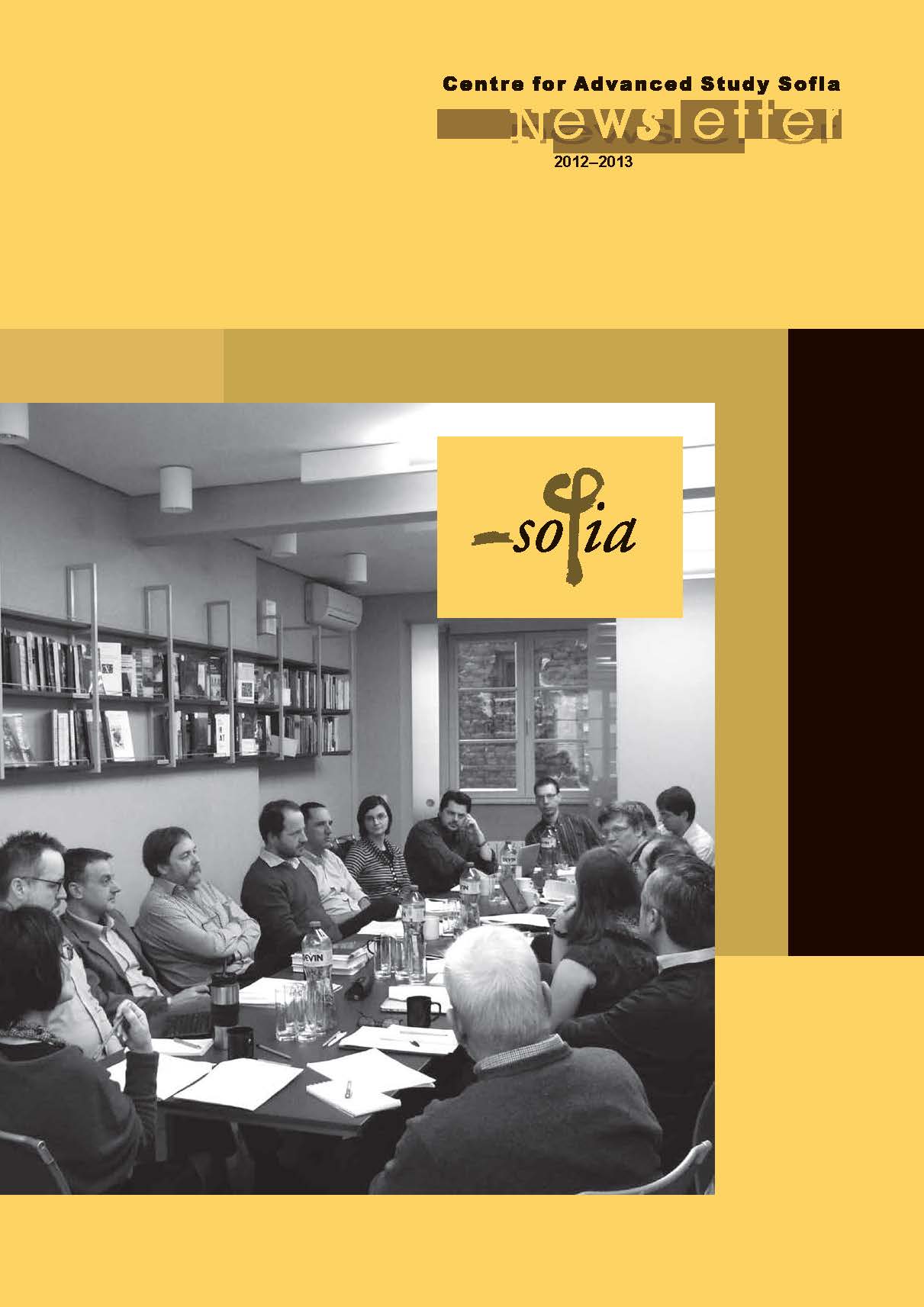
Articles, pictures and interviews can be reprinted only with the consent of Centre for Advanced Study Sofia (CAS - Sofia). Any citations should be duly acknowledged.
More...
Articles, pictures and interviews can be reprinted only with the consent of Centre for Advanced Study Sofia (CAS - Sofia). Any citations should be duly acknowledged.
More...
Articles, pictures and interviews can be reprinted only with the consent of Centre for Advanced Study Sofia (CAS - Sofia). Any citations should be duly acknowledged.
More...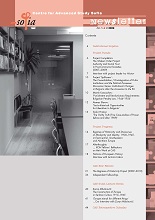
Articles, pictures and interviews can be reprinted only with the consent of Centre for Advanced Study Sofia (CAS - Sofia). Any citations should be duly acknowledged.
More...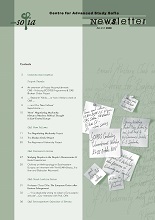
Articles, pictures and interviews can be reprinted only with the consent of Centre for Advanced Study Sofia (CAS - Sofia). Any citations should be duly acknowledged.
More...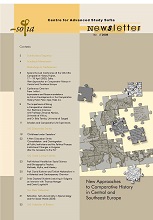
Articles, pictures and interviews can be reprinted only with the consent of Centre for Advanced Study Sofia (CAS - Sofia). Any citations should be duly acknowledged.
More...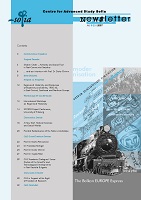
Articles, pictures and interviews can be reprinted only with the consent of Centre for Advanced Study Sofia (CAS - Sofia). Any citations should be duly acknowledged.
More...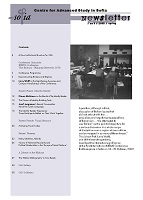
Articles, pictures and interviews can be reprinted only with the consent of Centre for Advanced Study Sofia (CAS - Sofia). Any citations should be duly acknowledged.
More...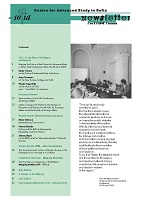
Articles, pictures and interviews can be reprinted only with the consent of Centre for Advanced Study Sofia (CAS - Sofia). Any citations should be duly acknowledged.
More...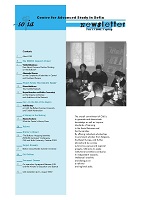
Articles, pictures and interviews can be reprinted only with the consent of Centre for Advanced Study Sofia (CAS - Sofia). Any citations should be duly acknowledged.
More...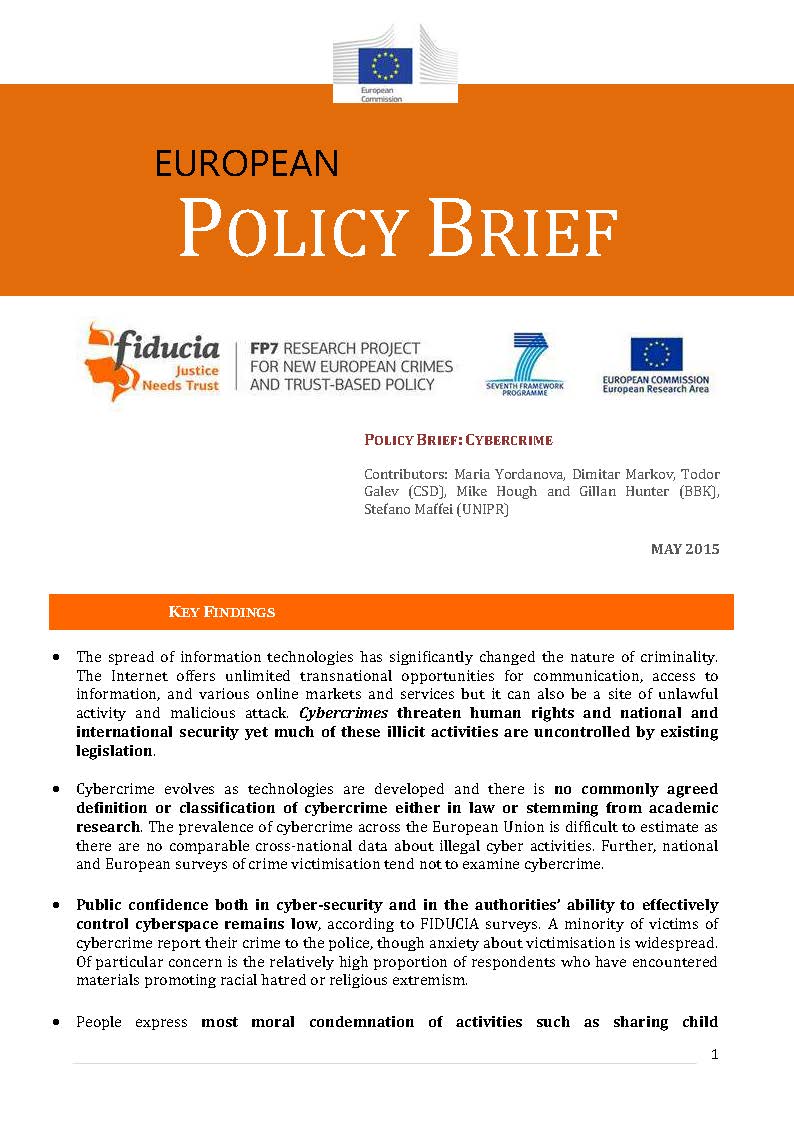
This Policy Brief summarises key findings from the FIDUCIA cybercrime survey, conducted in selected member states, but it also provides an overview of existing data and research on the prevalence of cybercrimes and the public attitudes towards them. The role of current national and European legislation, policies and practical measures are assessed in terms of their deterrent or preventative effects and the potential role for cross-national cooperation and self-regulation to control or prohibit cybercrime are reviewed.
More...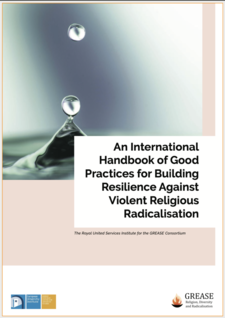
This handbook was created within the framework of the GREASE consortium which focuses on examining the relationship between radicalisation, secularism and the governance of religion. The main objective of the handbook is to outline good practices on resilience-building against violent religious radicalisation. It accomplishes this goal by combining practices from twelve in-depth case studies on violent religious radicalisation in countries in “the West” (Australia, Belgium, France, Germany, the UK), the MENA region (Egypt, Morocco, Tunisia), South and Southeast Asia (Indonesia, Malaysia) and countries with history of ethno-nationalist separatist struggles (Bosnia and Herzegovina, Russia). Based on shared practices, themes and commonalities across this range of country cases, the handbook outlines a common set of good practices. It illustrates these good practices though real examples from the country studies while it recognises that there is “no panacea to violent religiously-inspired radicalisation.” Although the handbook does not make claims that the good practices it identifies are the solution to violent religious radicalisation, such practices can provide valuable practical guidance and orientation to relevant stakeholders in designing resilience efforts. CSD contributed to the content of the handbook through results from the case study it conducted on good practices in Bosnia and Herzegovina.
More...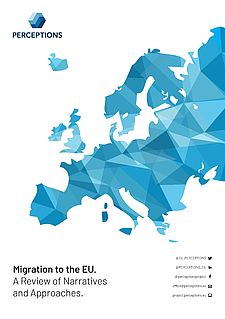
The aim of this brochure is to present current knowledge on migration narratives about the European Union (EU) and current approaches to migration since 2015 across the 15 countries in which PERCEPTIONS research is conducted. It maps the landscape of narratives on migration and Europe as a basis to understand migration flows and decisions as well as migration-related policies, perceived threats, and best practices to address migration challenges on local, national and international levels.
More...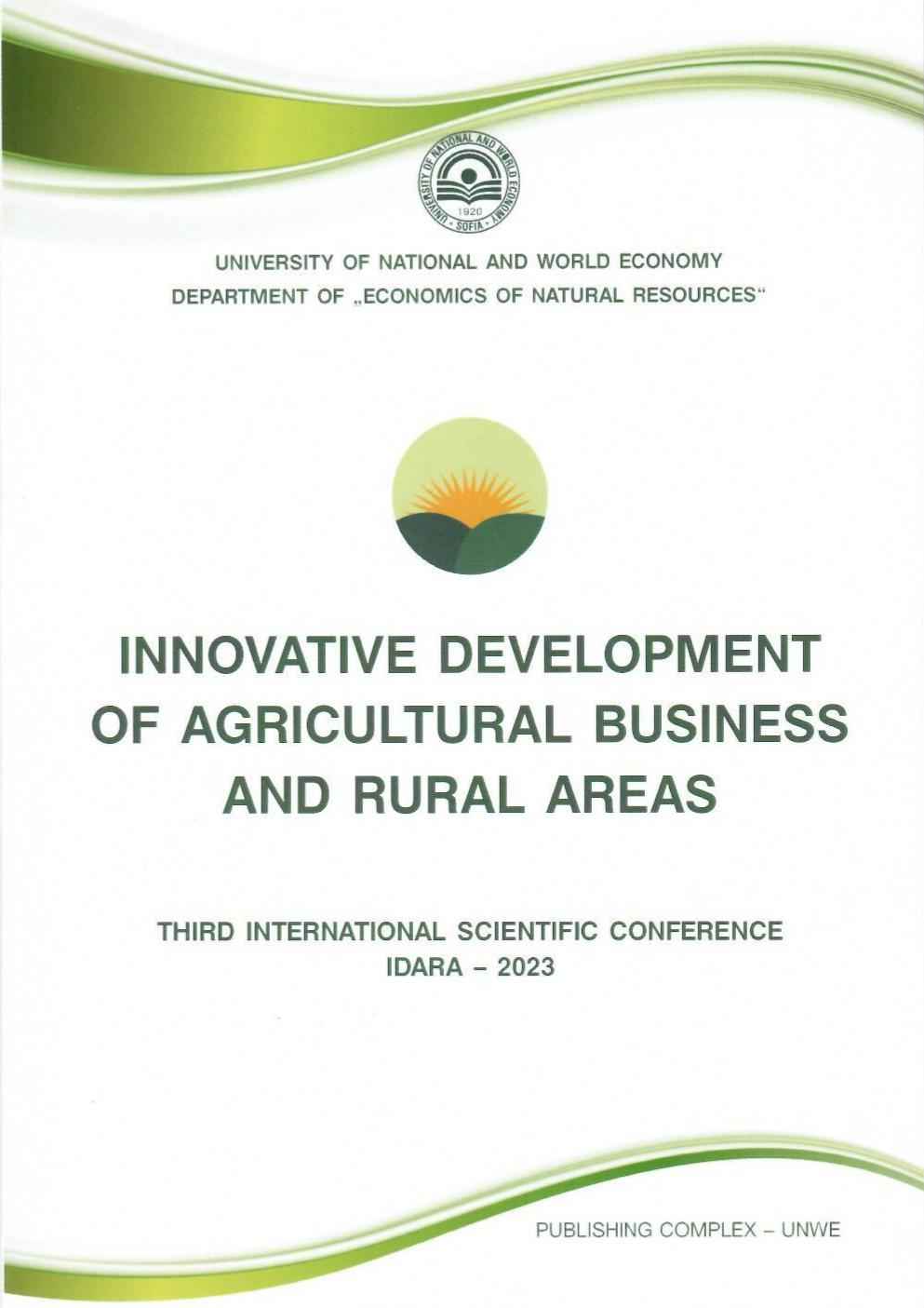
Rural areas are characterised by high biological diversity. Farmers are both direct users of ecosystem services, but on the other hand management of agricultural land affects not only the economic outcome but also has an impact on the condition of agroecosystems. Farm activities and agroecosystems are interlinked. The more conserved and protected the ecosystem functions are, the higher the positive feedback on the farm and the surrounding ecosystems is. The provision of ecosystem services can take different forms – through private contracts, collective contracts, government payments, etc. In Bulgaria at the moment, the most common form of provision is through public payments or through ecological certification of organic products. However, private arrangements can also enhance this provision and secure a win-win scenario for both provider and buyer of ecosystem services. This study shows several case-studies on private arrangements with comparative analysis on several contract features. These examples show different levels of provision of ecosystem services. In some cases, both the efforts and the actual benefit are at the same level, for example an agricultural plot (pollination contracts). In other cases, an actual effort in the form of agri-environmental measure can take place in a certain farm holding, but the actual benefit can be seen somewhere else, for example downstream of a watershed catchment. And in some instances, the actual effort is used to compensate for someone else’s pollution activities (see carbon credit markets). Very often, a farm is a user of ecosystem services, both within and outside its physical boundaries. On the other hand, some ecosystem services require collective action to be effective and meaningful (most often this is the example of biodiversity conservation). There is still a controversy over what is the best form for providing ecosystem services from agriculture – through private contracting or through the traditionally used public provision. The answer is likely to be found in the nature of the ecosystem services themselves. If for an ecosystem service such as crop pollination it is easy to establish a buyer and seller of the service, there are clear benefits for both parties, and the price can be easily determined. For others such as biodiversity, all this is very difficult to be achieved. For this purpose, it is necessary to assess the most important features characterising a contract. The form of the contract is tightly connected with whether the environmental effort of the farmer is measurable or not. For some ecosystem services, like pollination the environmental result is easily monitored and measured. Where in other instances, like the watershed groundwater quality, monitoring is difficult or impossible. Therefore, different ecosystem services pose the need for different contract arrangements.Rural areas are characterised by high biological diversity. Farmers are both direct users of ecosystem services, but on the other hand management of agricultural land affects not only the economic outcome but also has an impact on the condition of agroecosystems. Farm activities and agroecosystems are interlinked. The more conserved and protected the ecosystem functions are, the higher the positive feedback on the farm and the surrounding ecosystems is. The provision of ecosystem services can take different forms – through private contracts, collective contracts, government payments, etc. In Bulgaria at the moment, the most common form of provision is through public payments or through ecological certification of organic products. However, private arrangements can also enhance this provision and secure a win-win scenario for both provider and buyer of ecosystem services. This study shows several case-studies on private arrangements with comparative analysis on several contract features. These examples show different levels of provision of ecosystem services. In some cases, both the efforts and the actual benefit are at the same level, for example an agricultural plot (pollination contracts). In other cases, an actual effort in the form of agri-environmental measure can take place in a certain farm holding, but the actual benefit can be seen somewhere else, for example downstream of a watershed catchment. And in some instances, the actual effort is used to compensate for someone else’s pollution activities (see carbon credit markets). Very often, a farm is a user of ecosystem services, both within and outside its physical boundaries. On the other hand, some ecosystem services require collective action to be effective and meaningful (most often this is the example of biodiversity conservation). There is still a controversy over what is the best form for providing ecosystem services from agriculture – through private contracting or through the traditionally used public provision. The answer is likely to be found in the nature of the ecosystem services themselves. If for an ecosystem service such as crop pollination it is easy to establish a buyer and seller of the service, there are clear benefits for both parties, and the price can be easily determined. For others such as biodiversity, all this is very difficult to be achieved. For this purpose, it is necessary to assess the most important features characterising a contract. The form of the contract is tightly connected with whether the environmental effort of the farmer is measurable or not. For some ecosystem services, like pollination the environmental result is easily monitored and measured. Where in other instances, like the watershed groundwater quality, monitoring is difficult or impossible. Therefore, different ecosystem services pose the need for different contract arrangements.
More...
Bulgaria's good soil and weather conditions increase the potential of agriculture and provide good opportunities for quality and sustainable food production. These can be expanded and further improved through the use of innovation in all agricultural activities. Farm irrigation is essential for the food supply and economic development of many countries. Innovative solutions are needed to improve the efficiency and sustainability of agricultural practices. Innovations in agricultural irrigation are essential for sustainable farm development and reducing water stress in the world. They help farmers to improve their harvests and preserve water resources for future generations. Integrating different water sources such as groundwater, surface water, rainwater and wastewater can provide a more sustainable and reliable source of water for farms. Innovations in agricultural irrigation require training and education for farmers to understand how to use new technologies and methods. Governments and financial institutions can provide support and incentives to invest in innovative irrigation solutions. In recent years, aquaponics has become an innovative study of the aquaculture industry. Aquaponics is an innovation in modern farming, a sustainable micro ecosystem with a controlled environment, combining aquaculture with hydroponics. It is developing at a rapid pace as the need for sustainable food production grows and freshwater and phosphorus supplies decline. Another innovative method to tackle the problem of farm irrigation is aeroponics. It is defined as an aerial water culture system or the science of growing plants without soil or substrate culture. The plant grows in the air with the help of artificial support and no soil or substrate is required to sustain the plant. The roots of the plant are suspended in a closed container in the dark and exposed to the open air to receive nutrient-rich water dispersed through atomizers. The modernisation, rehabilitation and renewal of irrigation systems provides an opportunity to reduce the use of pesticides and fertilisers in line with the Green Deal. It also provides an opportunity for Bulgarian farmers to be competitive with their counterparts in other countries. The effect could be strongest for permanent crops, fruit and vegetable production and livestock farming. The goal of the report is to focus on solutions to the problem of farm irrigation in the country by implementing innovative solutions.
More...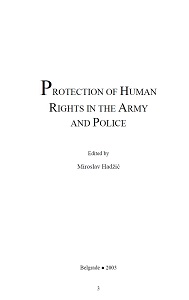
The chapter is about a survey conducted in Serbia on human rights in the Yugoslav Army, including views on corruption and limitations of human rights.
More...
The document discusses the normative and real aspects of human rights protection in the police force, focusing on the specific rights and authorities of police officers in Yugoslavia.
More...